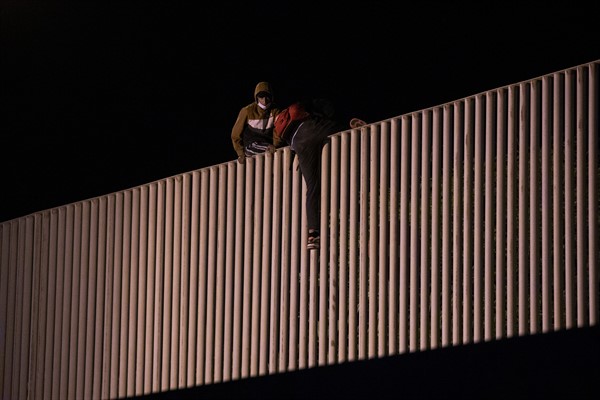Like the West’s response to the war in Ukraine, the U.S. response to 9/11 was also a worldmaking mission. Though obscured by the “War on Terror” label, it more broadly set out to remove pockets of instability and “fragility” that prevented the expansion and integration of the increasingly interconnected liberalized global economy. Though Europe often shied away from the militarized aspect of that mission, in retrospect it is clear that the great power the U.S. deployed—in the form of high-tech weapons and precision munitions—served to enhance the appeal of its model, used as both an “advertisement for the future” and evidence of the moral justness of its cause. Elsewhere, the ideological and normative objectives of globalization’s worldmaking mission were accomplished mechanically, through the indirect effects of trade on local politics, rather than through the use of force or conquest. By connecting their countries to the global economy, governments were opening pathways for the market to work its liberalizing magic by osmosis. In the U.S. and later worldwide, the tech revolution, imbued with utopianism, served as the civilian application of what the U.S. military showcased on the ground in the Middle East. In retrospect, of course, and as was already obvious to the populations on the receiving end of it, that narrative was equal parts myth and self-delusion. High-tech precision weapons made for great TV sound bites to sell the American public on a new antiseptic form of warfare, but they left behind thousands of dead civilians. Extremism and the instability and state fragility it caused were never sustainably eradicated in any of the places it was targeted. And in almost every case it was dispersed as well, widening the field of struggle against it from the Middle East to North Africa and West Africa—but also, in both familiar and new forms, to Europe and the U.S. Globalization was also far from the peaceful model of development it was portrayed to be. Dispossession and expulsion, as Saskia Sassen has pointed out, took place in parallel ways in both the periphery—in the form of extractive industries that left environmental degradation and state repression in their wake—and the center, in the form of unemployment, evictions and mass incarceration. Above all, globalization failed to deliver on its normative promise of delivering a great convergence around economic and political liberalism. Instead, it exacerbated inequalities within countries and societies, while distributing wealth and power to states whose governments didn’t share the West’s values. Moreover, it never managed to entirely eliminate geopolitical rivalries and conflict, and the resulting compromises between competing interests and values created cognitive dissonance between the theory and practice of globalization. The result was a murky erosion of delimiting principles, in which borders became theoretical for the goods that Western populations wanted to consume, as well as for wealthy populations the world over, while remaining concrete for the vast majority of people left to endure globalization’s more destructive consequences. Now, whether by choice or necessity, the war in Ukraine represents the first steps toward reestablishing firm limits both in and on Europe. But if Europe and the West’s response to the war in Ukraine is now being lauded—and not incorrectly—as a turning point in the battle between liberalism and authoritarianism, it is also a turning point in this ebb and flow between openness and closedness, as it is a defense of liberalism anchored in the nation-state. Globalization, it seems, has come full circle, from its early, if utopian, visions of a postnational future back to an embrace of the nation as the fundamental and necessary unit of political organization. What, then, will that mean for the broader global order as well as for Europe and the West’s self-defined role in it? How will the competing claims of connectedness and “protected-ness” be harmonized, if not reconciled? And what are the implications of a Europe divided between the EU and Russia for those countries that continue to seek to maximize the benefits of what remains of globalization, namely trade and investment? For now, Europe has expected the rest of the world to faithfully play the choir in its Greek tragedy, taking states to task for not aligning with its position in United Nations voting or refusing to join in its economic measures to punish Russia. But those states, and their populations, have little desire to be drawn into yet another geopolitical standoff in Europe that they have no power to influence but which is already having grave consequences for their populations. It is evidence of the West’s failure of imagination that it can respond so effectively to what Ukraine needs, because it involves weaponry and military assistance, but has little to offer when it comes to the socio-economic aspirations of the world that lies beyond its increasingly closing borders. It will have to generate some new ideas if it is to meaningfully shape the worldmaking moment it is now such a central participant in, but also if it hopes to avoid the errors that undid the last one.Globalization has come full circle, from its early, if utopian, visions of a postnational future back to an embrace of the nation as the fundamental and necessary unit of political organization.
Judah Grunstein is the editor-in-chief of World Politics Review. You can follow him on Twitter at @Judah_Grunstein.

